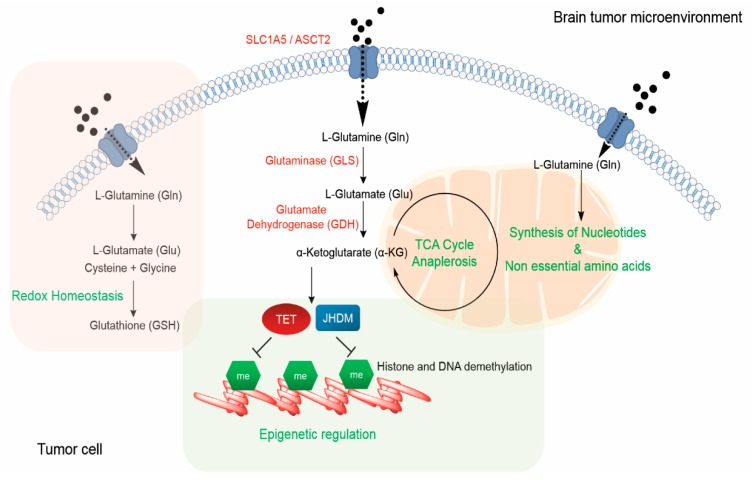Figure 3.
Functional roles of glutamine in regulating tumor progression. Glutamine from the brain tumor microenvironment is taken up by tumor cells via ASCT2/SLC1A5 and converted into glutamate by the enzyme, glutaminase (GLS). Glutamate, along with cysteine and glycine, can be utilized by the tumor cell to synthesize glutathione (GSH), which is pivotal for maintaining redox homeostasis. Glutamate dehydrogenase (GDH) converts glutamate to α-ketoglutarate (α-KG), which drives TCA cycle anaplerosis. Glutamine metabolism can influence the tumor cell epigenome and methylome by modulating the levels of α-KG, which is an important co-factor for DNA (TET) and histone demethylases (JHDM). Additionally, glutamine plays a key role in mediating synthesis of nucleotides and other non-essential amino acids. Abbreviations: TCA, tricarboxylic acid; TET, Tet methyl cytosine dioxygenase; JHDM, Jumonji domain-containing histone demethylase.

